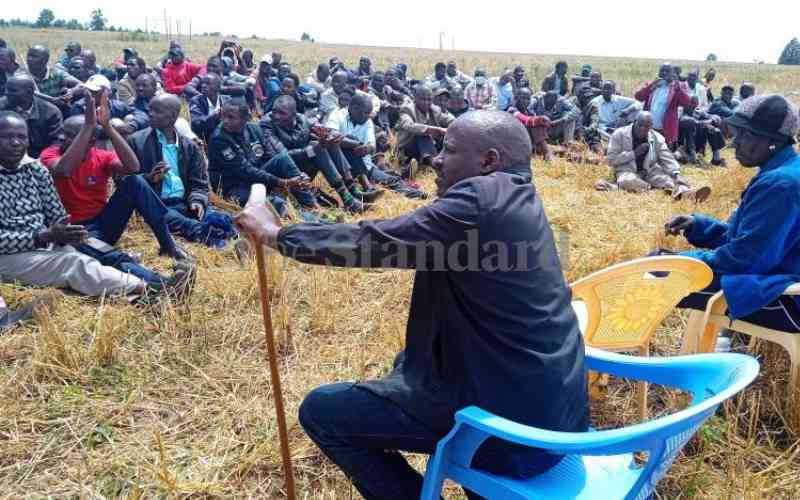×
The Standard e-Paper
Smart Minds Choose Us

For over a decade, a group of Sirikwa squatters have waged a tenacious court battle against the family of Kanu-era Member of Parliament Mark Too (deceased) over 25,000 acres of land located in Kapseret, Uasin Gishu County.
But yesterday, the Supreme Court, in a decisive blow, ruled in favour of Too's family and several landowners while reversing earlier judgments rendered at the Environment and Lands Court and the Court of Appeal.